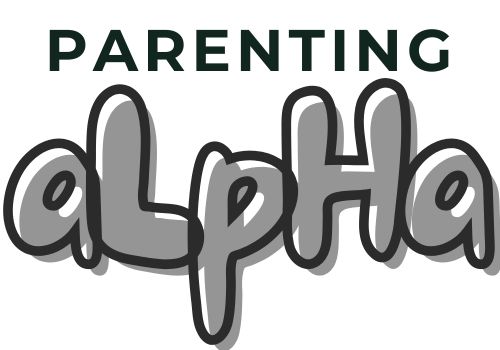When your child catches a cold or a minor respiratory infection, you might expect the recovery from the ensuing cough to happen within a few days. However, as days turn into a week or so, that persistent cough can become a source of worry and frustration.
The reality is, child cough can persist much longer, often taking weeks, but much as this extended recovery time can be concerning, it is usually a normal part of the healing process. What is important is that there is visible improvement in health, and just as well, other postive lifestyle choices are implemented at home.
Understanding why coughs often take long to resolve, especially in children, can also help you approach their recovery with patience and confidence. While it is always wise to consult with a healthcare provider if you are concerned, knowing that most prolonged coughs are part of the healing process can provide some reassurance during those trying weeks!
Why Cough Takes Long to Heal in Children
A cough is often the last symptom to linger after a child has had a cold or respiratory infection.
When your child catches a cold, the virus causes inflammation in the airways. Even after the virus has been cleared, the inflammation may persist, causing a lingering cough. Cough is the body’s way of continuing to clear out any remaining irritants, such as mucus, from the respiratory system.
The cough is essentially a protective mechanism, preventing the buildup of material that could obstruct airflow.
Here’s why cough recovery seems to take longer than expected:
1. Residual Mucus
- Why it matters: Coughs often persist because the body is still clearing out mucus or phlegm that builds up in the lungs and airways during an infection. In children, this process can be slower because they may have difficulty effectively clearing the mucus.
- Result: A wet, productive cough may last longer as the body continues to expel the remaining mucus from the airways.
2. Post-Viral Cough
- Why it matters: Even after a cold or viral infection subsides, the airways may remain sensitive and irritated, leading to a persistent cough. This post-viral cough can last several weeks as the airways recover and become less reactive.
- Result: Parents might notice that their child continues to cough long after other symptoms like fever or a runny nose have disappeared, which is common in viral infections.
3. Airway Sensitivity
- Why it matters: Children’s airways are more sensitive and smaller than adults’, making them more prone to irritation from infections, allergens, or environmental triggers (like smoke or pollution).
- Result: This heightened sensitivity can cause lingering coughs, as the inflamed or irritated airways may take time to heal and return to normal.
4. Inadequate Hydration
- Why it matters: Hydration plays a key role in thinning mucus, making it easier to clear out of the respiratory system. Many children may not drink enough fluids when they are sick, which can make their cough last longer.
- Result: Dehydration can lead to thicker mucus, prolonging a cough and making it more difficult for the child’s body to heal. Ensure your child is properly hydrated to speed up the healing process.
5. Immature Immune System
- Why it matters: Children’s immune systems are still developing, which makes it harder for their bodies to fight off infections quickly. Unlike adults, who have a more experienced immune system, children take longer to build up immunity against common viruses and bacteria that cause coughs.
- Result: A child may take longer to fully recover from a cough because their immune system is slower in responding to and clearing infections.
6. Frequent Exposure to Illness
- Why it matters: Children, especially those in schools, daycare centers, or playgrounds, are constantly exposed to other kids who may be sick. This increases their chances of catching new infections even while they are still recovering from a previous one.
- Result: Ongoing exposure to new viruses or bacteria can prolong a cough or cause recurring respiratory infections, making the recovery period seem endless. Sometimes, this can be helpful in building a strong immune system.
7. Environmental Triggers
- Why it matters: After an illness, the airways can remain sensitive to environmental irritants such as dust, smoke, strong odors, or dry air, causing the cough to continue even after the infection has cleared.
- Result: Exposure to these triggers can cause a chronic cough or delay recovery by keeping the airways inflamed.
Serious Causes of Chronic Cough

While many extended coughs are part of a normal recovery process, it is important to look out for signs of complications. If the cough is accompanied by wheezing, shortness of breath, high fever, or significant fatigue, it could indicate underlying issues such as:
8. Reflux (GERD)
- Why it matters: Gastroesophageal reflux disease (GERD) is a condition in which stomach acid flows back into the esophagus, irritating the throat and airways. Children with GERD may develop a chronic cough due to this irritation, especially at night when lying down.
- Result: If reflux is contributing to the cough, it can make recovery slower and require treatment that addresses both the cough and the reflux.
9. Asthma or Reactive Airway Disease
- Why it matters: Children who have asthma or reactive airway disease may experience prolonged coughs after a respiratory illness. Asthma causes the airways to be chronically inflamed and more sensitive to triggers, which can lead to extended coughing fits.
- Result: If asthma or a similar condition is undiagnosed or poorly managed, the cough can last much longer and may need specific treatments to control airway inflammation.
10. Secondary Infections
- Why it matters: Sometimes, a child’s cough persists because of a secondary bacterial infection, such as sinusitis, bronchitis, or pneumonia, that develops after a viral infection weakens the immune system.
- Result: These infections require antibiotic treatment, and without it, the cough may worsen or linger until the secondary infection is properly treated.
11. Allergies
- Why it matters: Allergic reactions to environmental factors like pollen, dust mites, or pet dander can cause chronic coughs in children. If a child has undiagnosed allergies, their cough may persist beyond an initial illness because the immune system continues to respond to these allergens.
- Result: Untreated allergies can lead to ongoing respiratory symptoms, including a nagging cough that lasts for weeks or even months. Seek appropriate treatment.
The Dangers of Inappropriate Use of Cough Medicine

It is tempting to reach for over-the-counter cough medicines when your child has been coughing for days, but these medications are not always the best recovery options, especially for young children.
They can be ineffective and may even cause side effects like drowsiness or worsened coughing. Additionally, some parents may mistakenly stop using necessary treatments (like inhalers or prescribed medications) too soon, leading to a prolonged recovery.
In summary, cough medications can lead to additional issues:
- Masking Symptoms: Cough suppressants work by stopping the cough reflex, but they don’t address the underlying cause of the cough. Suppressing a cough can prevent your child’s body from clearing out mucus, which can slow down their recovery.
- Potential Side Effects: Many cough medicines contain ingredients that are not suitable for young children, such as codeine or dextromethorphan. These can cause side effects like dizziness, nausea, or even more serious health issues if used improperly.
- Risk of Overuse: Relying on cough medicines too frequently can lead to reduced effectiveness and, in some cases, even dependency. It’s important to use these medications sparingly, if at all, in children.
- Extended Duration: Lack of appropriate treatment or the use of unsuitable medications can extend the duration of a cough in children.
What Natural Remedies are Safer Alternatives for Kids?

For parents seeking safer ways to help their children recover from a cough, natural remedies can offer effective and gentle alternatives without the potential risks associated with over-the-counter medications.
Below are some child-friendly recovery remedies that can soothe cough while promoting overall respiratory health:
1. Honey (for children over 1 year old)
- Why it works: Honey has natural antimicrobial and soothing properties, helping to coat the throat and reduce irritation.
- How to use: Give 1-2 teaspoons of honey to the child before bed, or mix it into warm water or herbal tea. Avoid giving honey to infants under one year old due to the risk of botulism.
2. Warm Fluids
- Why it works: Warm liquids help to soothe the throat, loosen mucus, and keep children hydrated. Hydration is essential for the body’s ability to fight infection.
- What to use:
- Warm water with lemon and honey: This classic remedy can help clear mucus and ease throat discomfort.
- Herbal teas: Chamomile or ginger tea (mildly brewed) can calm a cough and reduce inflammation. Add a bit of honey for added sweetness and effectiveness.
- Chicken soup: Warm, nourishing soup can help reduce throat irritation and improve hydration.
3. Ginger and Turmeric
- Why it works: Both ginger and turmeric have anti-inflammatory properties, which can reduce coughing caused by throat and airway irritation.
- How to use: Ginger can be steeped in hot water and served as tea, and turmeric can be mixed with warm milk (often called “golden milk”) for a soothing remedy. Add a bit of honey to sweeten.
4. Steam Therapy
- Why it works: Inhaling steam helps to loosen mucus and soothe irritated airways.
- How to use: Run a hot shower in a closed bathroom and allow your child to sit in the steamy air for 10-15 minutes. You can also use a humidifier in the child’s bedroom to keep the air moist, which may prevent nighttime coughing.
5. Saline Nasal Drops and Spray
- Why it works: Saline solutions can help clear nasal congestion, which often contributes to coughing.
- How to use: A few drops of saline solution in each nostril can break down mucus, making it easier for children to breathe, especially at night.
6. Elevating the Head During Sleep
- Why it works: Elevating the child’s head helps reduce postnasal drip, which can trigger coughing at night.
- How to use: Use an extra pillow or elevate the head of the bed slightly to keep the airways clearer.
7. Rest and Fresh Air
- Why it works: Adequate rest allows the immune system to fight off infections. Fresh air helps clear the lungs and prevent further irritation.
- How to use: Ensure your child gets enough rest and exposure to fresh, clean air. Keep an eye on environmental triggers, such as second-hand smoke, pet dander, or dust, which could aggravate the cough.
In Addition: Healthy Nutrition

Nutritious food and lifestyle medicine are important strategies when treating a cough in children because it helps support their immune system and aids in recovery.
- Foods rich in vitamins and antioxidants, like fruits and vegetables, can boost their body’s ability to fight off infections and reduce inflammation.
- Warm soups and broths not only keep them hydrated but also soothe irritated throats.
- Natural remedies like honey (for kids over 1 year), ginger, and turmeric can offer extra relief with their anti-inflammatory benefits.
By giving children a healthy, balanced diet while they are sick, you can help them recover faster and stay strong.
When to See a Doctor
While most coughs in children are harmless and will resolve on their own with time, there are situations where medical attention is necessary. You should take your child to see a healthcare provider if:
- The cough recovery does not happen after six weeks.
- Your child has difficulty breathing, chest pain, or is coughing up blood.
- The cough is accompanied by a high fever that doesn’t go down.
- Your child has a pre-existing condition like asthma that could be worsening the cough.
Understanding why coughs often take long to resolve, especially in children, can help you approach their recovery with patience and confidence. While it’s always wise to consult with a healthcare provider if you’re concerned, knowing that most prolonged coughs are part of the healing process can provide some reassurance during those trying weeks.





Leave a Reply